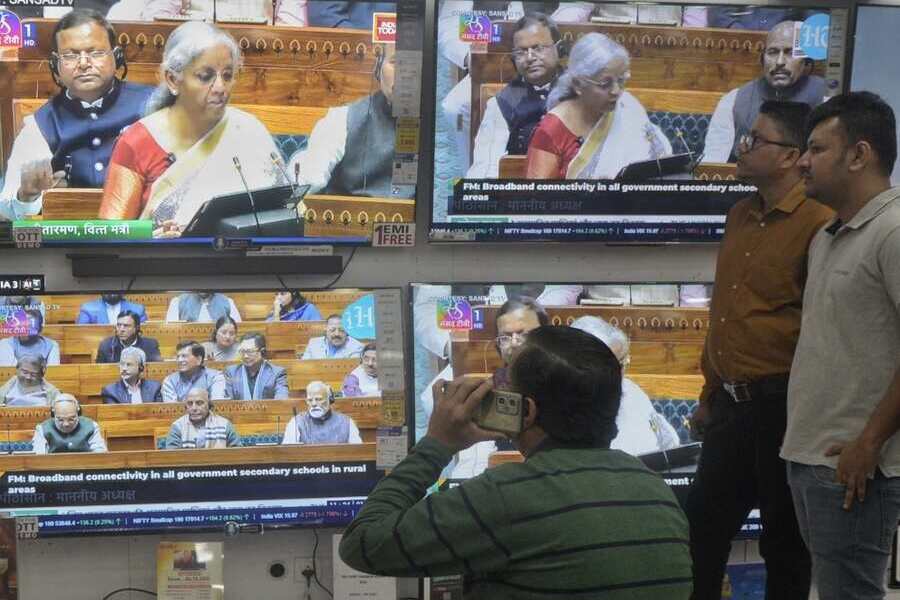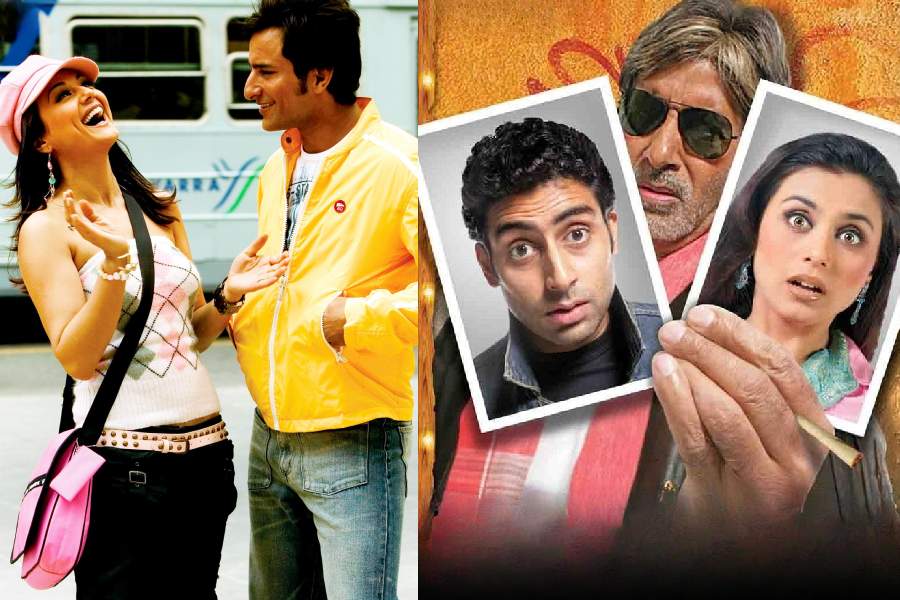 Sunday, 02 February 2025
Sunday, 02 February 2025
 Sunday, 02 February 2025
Sunday, 02 February 2025
The Delhi high court has closed the proceedings on a petition challenging the Rajiv Gandhi government's decision to ban the import of Salman Rushdie's controversial novel, The Satanic Verses, in 1988, saying since authorities have failed to produce the relevant notification, it has to be presumed that it does not exist.
A bench headed by Justice Rekha Palli observed that the petition, which was pending since 2019, was therefore infructuous and the petitioner would be entitled to take all actions in respect of the book as available in law.
Petitioner Sandipan Khan, who claims to be a book lover, had argued that the notification issued by the Central Board of Indirect Taxes and Customs on October 5, 1988 in accordance with the Customs Act, was neither available on any official website nor with any of the authorities concerned.
This practically means that the novel, released by London-based Penguin Group in 1988, can now be imported.
The Satanic Verses is the fourth novel by the Indian-British writer Salman Rushdie. The book was inspired partly by the life of the Prophet Muhammad, and it dealt with two protagonists of Indian Muslim background.
Geoffrey Robertson, who defended the writer in a blasphemy case, wrote in The Guardian in 2012, “ The Satanic Verses is not blasphemous. The book is the fictional story of two men, infused with Islam but confused by the temptations of the west. The first survives by returning to his roots. The other, Gibreel, poleaxed by his spiritual need to believe in God and his intellectual inability to return to the faith, finally kills himself."
Controversy has dogged the book, a work of magic realism, from the moment it was launched.
1988

The Satanic Verses was published and soon sparked a global controversy.
Labelling the book blasphemous, Pakistan banned the The Satanic Verses in November 1988.
The Rajiv Gandhi government in India, embroiled in the Ram Mandir and Shah Bano controversy and succumbing to pressure from radical elements, banned the book’s import into India under the Customs Act, 1962.
"The right to freedom of expression is at the foundation of any democratic society, and at present, all over the world, Indian democracy is becoming something of a laughing stock," Rushdie reportedly wrote to Rajiv Gandhi in a letter.
1989
On February 12, 1989, as many as 10,000 protesters gathered against Rushdie and his book and stormed the American Cultural Centre in Islamabad, Pakistan.
Six protesters died in the attack.
Calling for Rushdie and his publishers’ death, Ayatollah Ruhollah Khomeini, the then Supreme Leader of Iran, issued a fatwa on February 14, 1989.
Even though the British Conservative government under Margaret Thatcher gave Rushdie police protection, British Labour MP Keith Vaz led a march through Leicester calling for a ban on the book.
Norman Tebbit, former chairman of the British Conservative party, branded Rushdie an "outstanding villain" whose "public life has been a record of despicable acts of betrayal of his upbringing, religion, adopted home and nationality".
1991
On July 3, 1991, Rushdie's Italian translator Ettore Capriolo was seriously injured in a knife attack at his home in Milan.
Ten days after the attack on Capriolo, Hitoshi Igarashi, Rushdie's Japanese translator, was found stabbed to death in his office at the University of Tsukuba.
1993
On July 2, 1993, a mob set fire to the Madimak Hotel, where Rushdie’s Turkish translator Aziz Nesin was attending the Pir Sultan Abdal festival. A total of 37 people were killed in the attack known as the Sivas massacre. Nesin managed to escape death.
On 11 October, William Nygaard, the Norwegian publisher of The Satanic Verses, was shot thrice and left critically injured.
2015
The Congress’s Shashi Tharoor was reminded about Satanic Verses when he protested against several bans that the Modi government introduced.
“Bleep it out, ban it, can it: mounting intolerance in BjP's India,” Tharoor wrote, sharing an article titled “Series of bans fuel fears of growing climate of intolerance in PM Modi's India”.
In a reply to Tharoor’s tweet, a user said, “@ShashiTharoor The Satanic Verses, Midnight's Children, Aandhi. Congress, despotic Congress. Lest we forget ! Lest you ignore.”
In his reply, Tharoor wrote, “@AloPal of the 3, only the Satanic Verses was banned, a decision I deplored.”
2016
In March 2016 the bounty for the Rushdie fatwa was raised by $600,000 by 40 state-run media outlets in Iran
2019
Sandipan Khan, aforementioned book lover, filed a plea and challenged the ban imposed on the book in India.
2021
In April 2021, 40 years after his seminal novel Midnight’s Children was published, Rushdie wrote in The Guardian that India was “no longer the country of this novel”. He spoke about the rise of authoritarianism and said they “encourage a kind of despair”.
2022
On August 12, Rushdie was attacked on stage at an event of the Chautauqua Institution in New York state.
The attacker, Hadi Matar, has pleaded ‘not guilty’ to charges of assault and attempted murder.
2024
Rushdie later wrote about the attack in his book Knife: Meditations After an Attempted Murder, released on April 16, 2014.
“India, the country of my birth and my deepest inspiration, on that day found no words,” he wrote.







